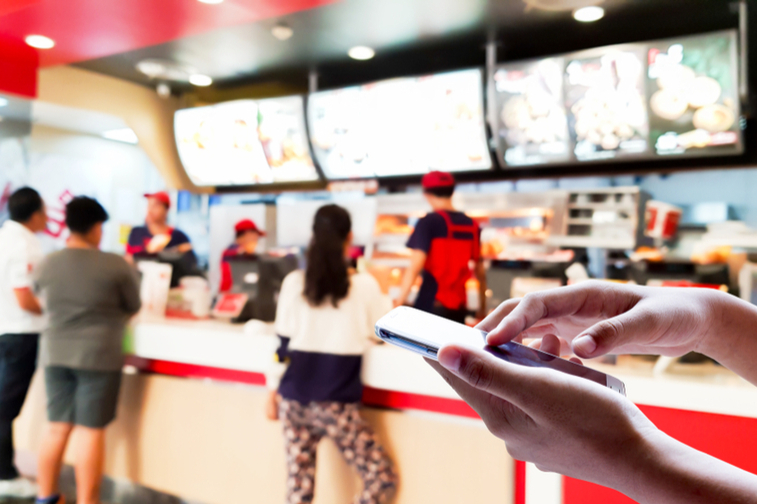
Investing in new technology does not have to break the budget, although it should be a well considered and thoughtfully planned endeavor. As such, QSRs must be strategic about their digital transformation initiatives, investing in the solutions that complement their customer base as well as enhance their established brand identity and the basic tenets of quick serves.
A unified technology platform is important for consistency and easy integration, which is why many forward-thinking QSRs choose to work with end-to-end service vendors to centralize their digital systems. With the rate of change in consumer preferences and digital solutions, it is also important to future-proof digital transformations with flexible tech stacks. Partnering with an analytics vendor also provides access to the necessary data collecting and analyzing capabilities for informed strategies, programs and initiatives.
QSRs are especially invested in offering mobile apps that provide easy off-premise access and promote customer loyalty. Drive-thru and in-restaurant experiences can also utilize mobile solutions, such as self-ordering kiosks. Research from App Annie suggests that consumers actively engage with mobile apps, with the top four delivery apps experiencing a 115% increase in downloads in 2018 when compared to 2016. Such high mobile engagement creates a viable opportunity for QSRs to connect with their customers.
Of course, simply having a mobile app is only half the battle. Research shows that 67% of retail mobile users will delete an app after a poor experience.14 Quick serves must adopt strong infrastructures and implement engaging user experiences to retain app users, and in turn, customers. Modern frameworks will also integrate web, mobile and analytics for consistent, data-driven customer experiences.
Strategic digital transformations in action
As part of the company’s commitment to a robust digital transformation, McDonald’s acquired the AI-powered omnichannel personalization platform Dynamic Yield Ltd. in March 2019. Dynamic Yield’s machine learning technology will enable the fast-food chain to provide personalized digital promotions informed by massive amounts of customer data. The company plans to roll out the personalized experiences in drive-thrus and self-order kiosks, as well as on the McDonald’s mobile app. Essentially, the acquisition allows McDonald’s to drive sales at the point-of-purchase by using consumer data to offer favorite meals or recommend popular items. The fast-food chain’s investments in the tech space continued, defined by the role its mobile app plays in the brand’s digital acceleration. The recent agreement was to acquire 9.9% of Plexure, a mobile-app platform that focuses on mobile order and pay, loyalty programs, analytics, personalization and operations integration. The investment gives McDonald’s access to enhanced back-end and front-end features, customer functionality and targeting insights.
In 2018, Sonic rolled out its fresh digital initiative, internally coined the Integrated Customer Engagement strategy. As part of the customer-first digital transformation, the QSR implemented a Mobile Order Ahead system, which quickly represented nearly 30% of the company’s total sales. Point-of-personalized service displays are also present at roughly 95% of drive-in stalls, and the company increased its marketing spend on digital channels, customer rewards and other value-added features. Striving toward increased guest loyalty and sales, Sonic is on track to open another 50 to 55 restaurants as well as relocate or rebuild another 35 to 40 storefronts. Such development is a strong indicator of how the company strategized a long-term digital transformation plan.
Partnering with global and national QSRs, Samsung SDS has been leading the charge to transform restaurant storefronts into restaurants of the future by utilizing Samsung SDS’ QSR solutions to create seamlessly connected experiences for customers. For instance, with our QSR brand clients that have a strong drive-thru focus, i.e., 60% to 70% of customers ordering through the drive-thru, the first step to a meaningful transformation is to revamp the experience for even more engagement. By introducing drive-thru number plate recognition technology, digital displays can be configured to provide personal recommendations and suggestions. For instance, the customer may receive a greeting like “Would you like the same order as last time?” or “It’s hot outside. Would you like an ice cold drink?” The result is a drive-thru experience that increases customer satisfaction, reduces order inaccuracy and speeds up the entire process.
Samsung SDS also improves the dine-in experience by providing a total refresh, complete with mobile kiosks that allow customers to place their orders independently. What’s more, recognition technology within the establishments is able to recognize repeat customers, giving them the same personalized recommendations as the drive-thru customers received. By reimagining the inrestaurant customer journey, the QSR brands we work with have been able to provide customers an upgraded experience that met their demands for greater speed and convenience.
Joining the digital revolution
The goal of digital transformation is to optimize QSR processes and learn from data to provide the best possible customer experience. The new digital reality requires QSRs to implement new technology that enhances speed, convenience and accuracy, all while creating an ideal customer experience that increases satisfaction and builds loyalty.
QSRs that develop a digital-first strategy and make smart investments in the appropriate digital solutions will be in a position to overtake the competition. Understanding consumer needs through behavior analytics will help QSRs determine where digital solutions fit within the brand’s overall vision and strategy. As quick service restaurants continue to digitalize operations with AI-powered solutions, it will also be important for leaders to plan for future applications of the technology before they go mainstream.
The current QSR landscape and its consumers demand digital transformations that will secure quick serves a place in the future of the industry.

Maggie is part of the Digital Transformation Team at Samsung SDS America.
- 3 steps to optimizing the car dealership showroom experience
- How to enhance modern dealership operations: Inventory, staffing, and showroom management
- Reducing costs with affordable and resourceful mPOS
- Improving the user experience with mPOS
- Mobile point-of-sale systems: How they streamline the user experience & maximize ROI
